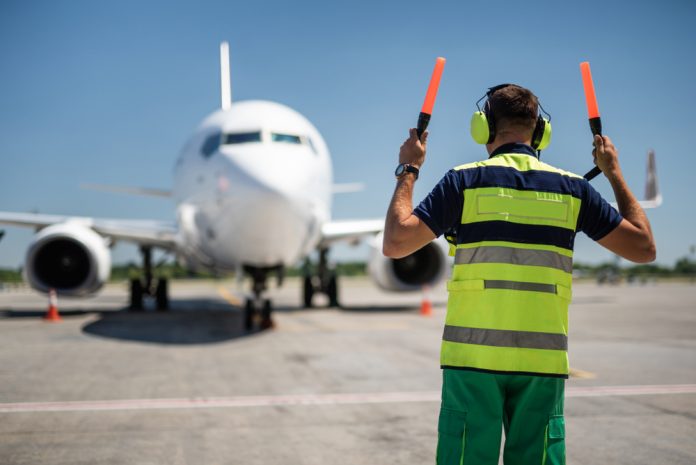Sunshine Coast flights could be grounded this Christmas holiday season due to an exodus of critical aviation ground operation workers, the sector’s union has warned.
Ground crew that are outsourced have been excluded from an Australian Government support package for airlines of $750 a week, meaning workers could be forced out of the industry.
The income support was designed to protect local aviation jobs and ensure skilled workers were available when normal flight schedules resumed in coming months.
However, only airline staff are eligible, with specialist aviation ground operations staff employed by third party suppliers excluded.
At Sunshine Coast Airport, 100 per cent of check-in, customer service, ramp, baggage and above-and-below wing operations are conducted by outsourced providers.
At the airport’s peak before COVID, there was an average of 81 domestic flights in and out per week, with up to 1.3 million passengers per year and contributing an estimated $4 billion tourism output in the region.
Today, with much of the nation in lockdown and limited regional flights, there are as few as 25 flights per week.
The Australian Aviation Ground Handling Industry Alliance has warned that without aviation ground operations, planes will not be able to fly.
Aviation ground operations staff perform 15 key functions at airports including:
- aircraft safety inspections before take-off
- taxiing aircraft onto runways
- ensuring baggage and cargo are safely balanced in aircraft holds
- communicating with aircraft control towers
- managing all aircraft movement on the ground
- aircraft cleaning
- security assessment of passengers at check-in
- driving passenger buses across tarmacs
- inflight catering and baggage and cargo handling
Australian Aviation Ground Handling Industry Alliance chair Glenn Rutherford said the Sunshine Coast’s economic recovery this summer could be threatened.
“Our 9,800 specialist ground handlers are being denied the same financial support from the government for doing the same work, at the same airport for the same airline as inhouse employees,” he said.
 “If that protection is not extended to all aviation ground operations personnel, it will inevitably mean a large proportion of our workforce will pursue other more financially secure work in the weeks ahead, after almost 18 months of diminished or no work.
“If that protection is not extended to all aviation ground operations personnel, it will inevitably mean a large proportion of our workforce will pursue other more financially secure work in the weeks ahead, after almost 18 months of diminished or no work.
“It will then take at least six months to recruit more workers when state borders reopen, train them up to government standards and have them accredited by the government.
“That means we are likely to see many flights grounded in November, December, January and February owing to a nationwide shortage of professional aviation ground operations staff.
“This is precisely the time when the Australian economy, and Queensland’s tourism sector, is set to recover from COVID-induced lockdowns and when demand for flights is expected to strengthen.
“Shortages of critical aviation ground handling professionals are likely to affect rural and regional airports the hardest, owing to the greater reliance on outsourced specialist operations staff.”
Help keep independent and fair Sunshine Coast news coming by subscribing to our free daily news feed. All it requires is your name and email. See SUBSCRIBE at the top of this article
Eighty per cent of all aviation ground operations are performed by specialist outsourced providers, while only 20 per cent are performed by airlines themselves. This is a worldwide trend that has grown over the last 20 years, as airlines concentrate on flying.
Mr Rutherford said Europe and North America were already suffering a similar aviation ground operations labour bottleneck, which was artificially capping the number of flights that could occur, despite strong demand from the flying public and regulatory approval to open up flight schedules again.
“Aviation is made up of airports, airlines and specialist aviation ground operations. Without all three, planes cannot fly,” he said.
“Excluding specialist aviation ground operations staff from the government packaged has not been explained and presumably is the unintended consequence of a worthy policy initiative.”





